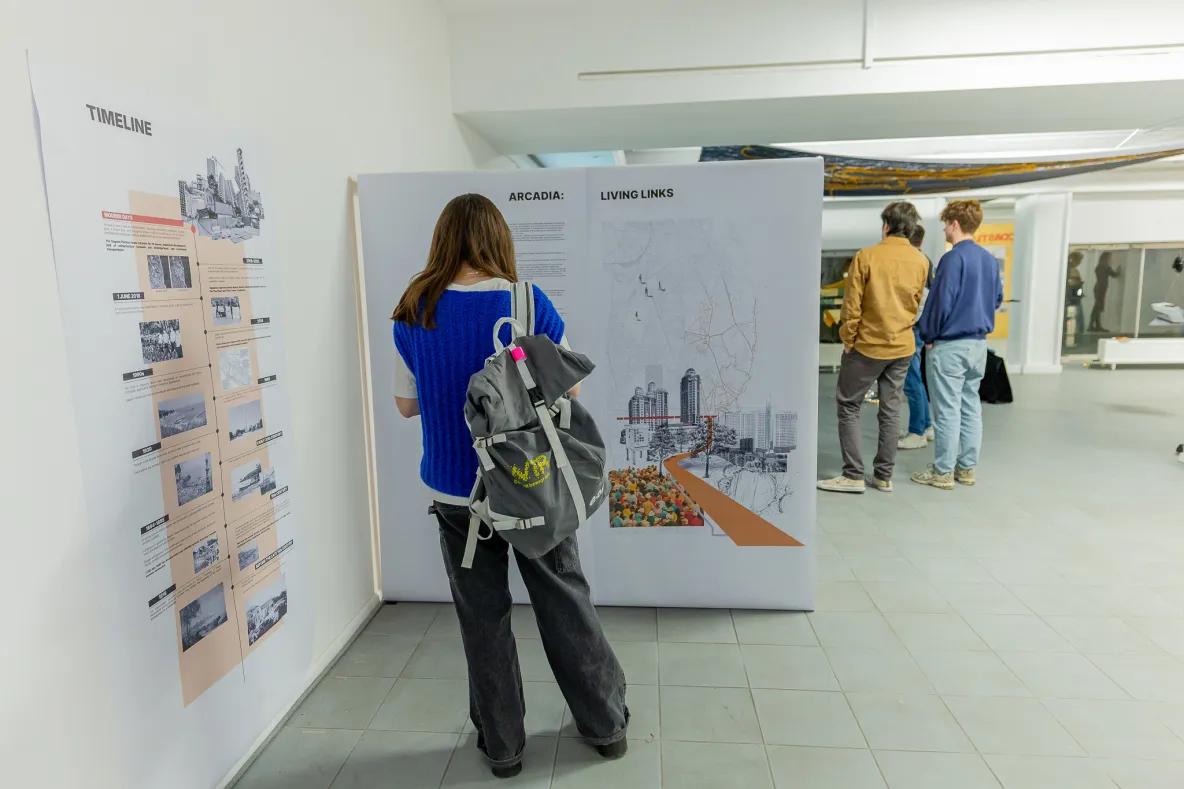
University of Limerick students and staff have led an international workshop to help Ukraine re-imagine and rebuild itself after the war.
The Building Back Better ODESA project is the latest outcome of a three-year collaboration with the Kharkiv School of Architecture and the United Nations Human Settlements Programme (UN-Habitat).
The pioneering initiative brings together professionals from across the globe with over 100 students from UL, Kharkiv School of Architecture, Bruno School of Architecture, and Warsaw Polytechnique School of Architecture.
Associate Professor Peter Carroll, Head of UL’s School of Architecture and Product Design is one of a team of five UL academics leading the project.
“Working in parallel and connected design studios in Lviv and Warsaw, we are developing an approach to the reconstruction of Ukraine by looking closely at the social, climatic, economic, ecological, and cultural forces that have shaped the city, and setting a fresh vision for the city based on a free and independent Ukraine,” explained Associate Professor Carroll.
UL’s involvement in this project has been driven by Professor Robert Mull, Adjunct Professor in UL’s School of Architecture and Product Design. Professor Mull is Head of The Global Free Unit, an organisation that challenges architecture students to deliver projects in difficult contexts of deprivation, displacement, and political uncertainty.
Professor Mull said: "Our workshops in Warsaw and Lviv have many outputs. But perhaps the most important is the creation of new international communities of practice that endure long after the workshops.
These new communities are based on generosity, mutual respect and cooperation, precisely, the values that are needed to ensure a Ukrainian led, ambitious and sustainable Ukrainian recovery. A recovery capable of resisting further war and colonization through reconstruction. UL staff and students have and will continue to play a decisive role in this process," he added.
In 2024 the Norwegian Refugee Council (NRC) sponsored the Building Back Better workshop which focused on the Dnipro River and the city of Dnipro. This year UN-Habitat is sponsoring the workshop which focused on the Black Sea port city of Odesa.
Odesa was selected as it represents significant economic and strategic value to Ukraine as a primary port city and heritage site which has been targeted by Russian attacks throughout the war.
UL’s Professor Merritt Bucholz, Associate Professor, School of Architecture and Product Design said there was an urgent need to support the development of advanced concepts for the future of a new Ukraine while the war is ongoing.
“The European educational system has a responsibility to support our Ukrainian colleagues to put the skills and knowledge in place to rebuild the country. We are working with the Kharkiv School of Architecture to create new degrees in Urban Design and Architecture, built on the European educational system while firmly rooted in Ukrainian culture and a deep understanding of Ukrainian cities and society.
“The physical rebuilding of cities is about how the culture of Ukraine asserts itself in the reconstruction project to create a sustainable, equitable Ukraine that Ukrainians wish to move back to,” he said.
The Building Back Better workshop was designed to help prepare the city of Odesa for the complex challenges of reconstruction and to support and build trust with the community. The participants have been tasked with creating robust plans to rebuild the city based on principles of transparency and equity.
Professor Bucholz said: “Aid agencies are preparing the groundwork for more than just emergency relief, but also for the reconstruction of the country in a durable, resilient and climate aware manner - that begins with emergency aid and leads to new resilient structures being formed; long-term thinking to drive long-term impact.”
A visual exhibition as part of the culmination of this workshop was held in both Warsaw and Lviv concurrently on 31 January. Poignantly, while Ukrainian and EU students presented their projects focussed on the reconstruction of Odesa on the day, Russian forces launched further missile strikes on Odesa's historic center.
‘Architecture of Unity - Sustainable Recovery through Education and Collaboration,’ will also be featured as part of an exhibition in Kyiv in March and at the French Pavilion at the prestigious Venice Architecture Biennale in May.